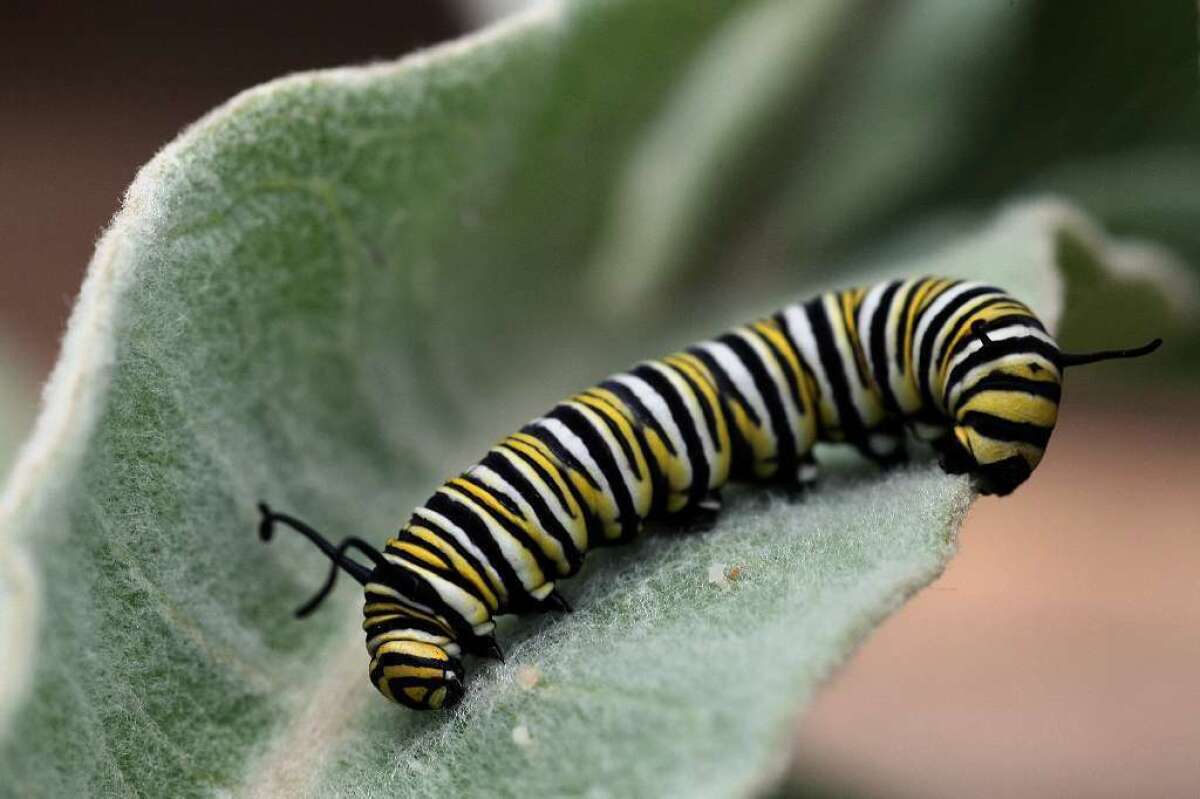Limits sought on weed killer glyphosate to help monarch butterflies

- Share via
With monarch butterfly populations rapidly dwindling, a conservation organization on Monday asked the U.S. Environmental Protection Agency to implement tougher rules for the weed killer glyphosate — first marketed under the brand name Roundup — to save America’s most beloved insect from further decline.
In a petition, the Natural Resources Defense Council argued that current uses of glyphosate are wiping out milkweed, the only plant upon which monarch caterpillars feed. The loss of milkweed is having a devastating effect on the life cycles of the large, fragile orange-and-black butterflies, which migrate through the United States, Canada and Mexico.
It takes several generations of the insect scientists know as Danaus plexippus to make the round trip because each monarch lives only a few weeks in the summer.
Since federal glyphosate rules were last updated a decade ago, its use has spiked tenfold to 182 million pounds a year, largely due to the introduction and popularity of corn and soybeans genetically modified to resist the herbicide, the petition says.
“The tenfold increase in the amount of glyphosate being used corresponds with huge losses of milkweed and the staggering decline of the monarch,” Sylvia Fallon, an NRDC senior scientist, said in an interview. “We are seeking new safeguards desperately needed to allow enough milkweed to grow.”
California’s monarch population has fallen an estimated 80% over the last 15 years due to urbanization, drought, weed abatement programs and pesticides, according to the nonprofit Xerces Society, a Portland, Ore.-based organization dedicated to conservation of invertebrates.
The caterpillars are about 2 3/4 inches long, with a pair of black antennae-like appendages at either end of a body ringed with black, yellow and white stripes. They spend most of their three weeks of existence munching on milkweed leaves.
The EPA is scheduled to complete a new review of glyphosate rules in 2015. But “given the rapid decline in monarch numbers, the EPA should take immediate steps to review and restrict glyphosate’s uses,” the petition says.
The petition asks the EPA to consider preventing the use of glyphosate and other weed killers along highways and utility rights of way where milkweed could grow freely without interfering with maintenance or emergency crews.
It also asks that farmers be required to establish herbicide-free safety zones in or around their fields, and urges the EPA to ensure that any new safeguards on glyphosate don’t lead simply to more use of other weed killers that would be equally bad for monarchs and may pose health risks.
“The good news is that butterflies are resilient and can rebound quickly,” Fallon said. “All they need is milkweed on which to lay their eggs.”







